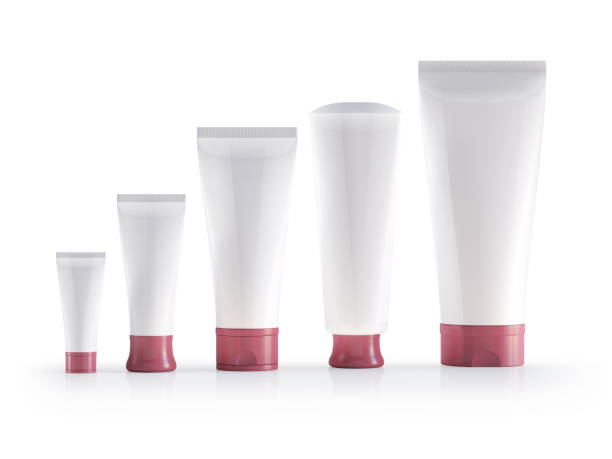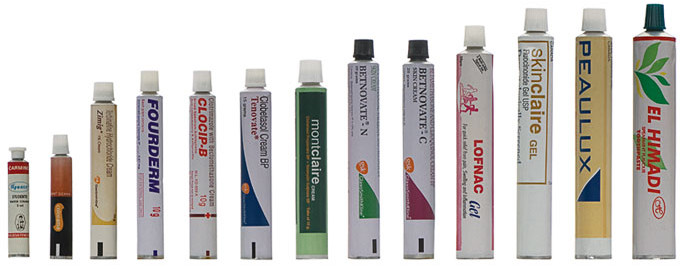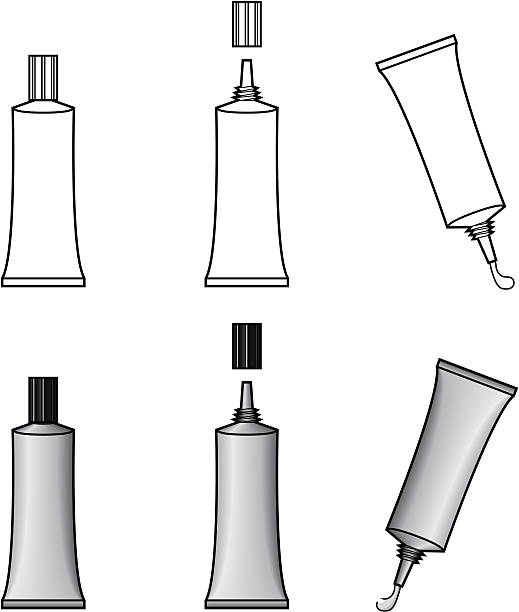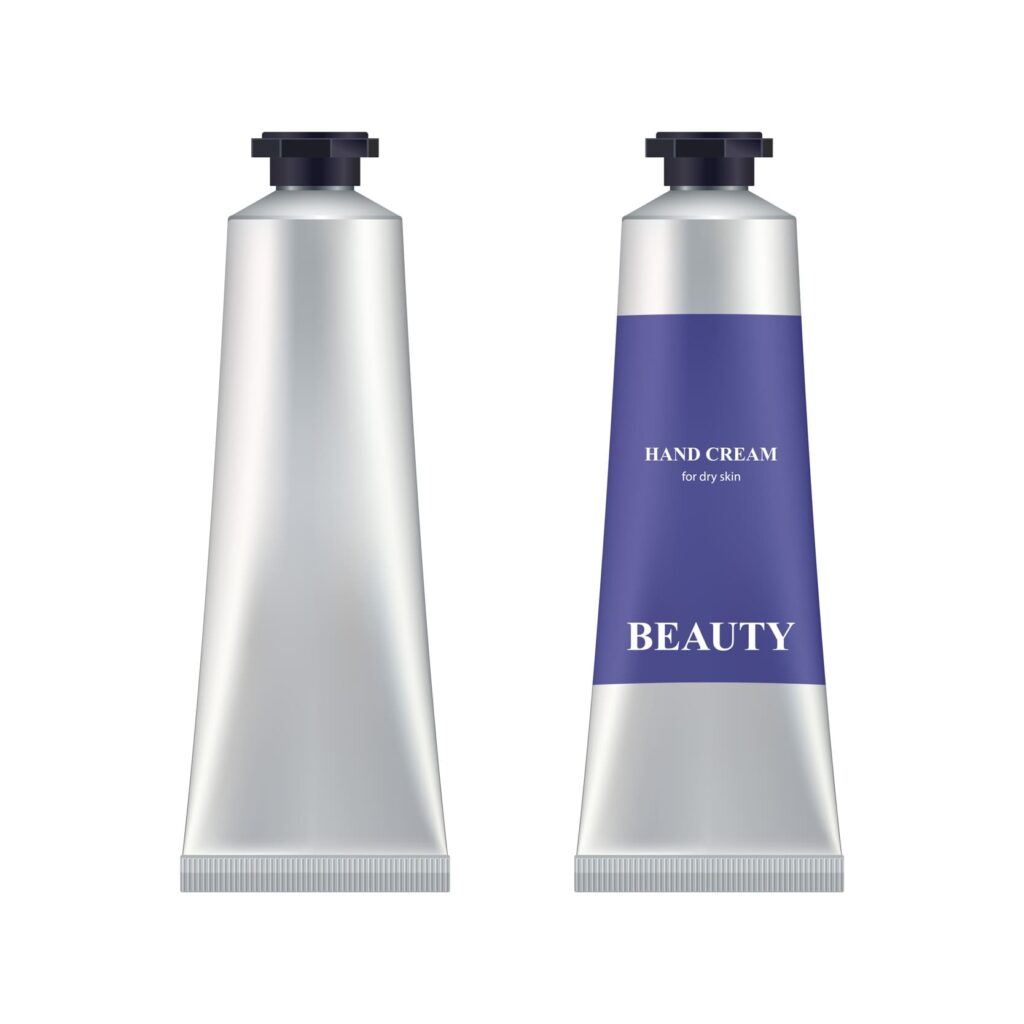The answer is ” yes” aluminum tubes are recyclable. In fact, aluminum is one of the most recycled materials on the planet due to its ability to be melted down and reformed without losing any quality. This means that the same piece of aluminum can be recycled over and over again, infinitely.
However, the process of recycling aluminum tubes isn’t as simple as tossing them into your recycling bin. The tubes must be empty and clean before they can be recycled. The leftover product inside the tube can contaminate the recycling process, so it’s crucial to squeeze out as much as possible and rinse the tube with warm water. Beauty Sky Packaging does the right process to make aluminum tubes into aluminum bricks.
Moreover, it’s important to know that not all recycling programs accept aluminum tubes. This largely depends on the facilities and capabilities of the recycling program in your area. It’s always a good idea to check with your local waste management facility or recycling program to understand their specific rules and regulations regarding aluminum recycling.
Recycling aluminum tubes is an effective way to conserve resources and reduce environmental impact. By choosing to recycle these items, you’re contributing to a more sustainable planet. The more we recycle, the less we need to extract raw materials, reducing both energy consumption and environmental damage.
Remember, our individual actions, such as recycling, can collectively have a significant impact on the health of our planet. So, let’s use materials that can be recycled and recycled and help make a difference!
Are plastic tube recyclable?
Plastic packaging tubes, like those used for toothpaste, creams, and other products, can technically be recycled. However, whether or not they are accepted in recycling programs largely depends on the type of plastic used and the recycling facilities available in a given area, like aluminum laminated, aluminum foil.

Many plastic tubes are made from a combination of different types of plastic, which can make them more challenging to recycle. They often contain a layer of aluminum, too. Because of these mixed materials, many curbside recycling programs do not accept plastic tubes.
However, some manufacturers are making efforts to produce tubes from a single type of plastic to make them easier to recycle. For example, some tubes are now being made entirely from high-density polyethylene (HDPE, resin code 2) or polyethylene terephthalate (PET, resin code 1), which are widely accepted in recycling programs. manufacturers are making efforts to produce tubes from a single type of plastic to make them easier to recycle. For example, some tubes are now being made entirely from high-density polyethylene (HDPE, resin code 2) or polyethylene terephthalate (PET, resin code 1), which are widely accepted in recycling programs manufacturers are making efforts to produce tubes from
Before you dispose of a plastic tube, it’s important to check the packaging for any recycling instructions or symbols. If the tube is recyclable, it’s generally best to clean it out as much as possible before recycling to avoid contamination.
If your local recycling program does not accept plastic tubes, there may be other options available. Some brands offer take-back programs for their packaging, or there may be special recycling facilities in your area that accept items not typically taken in curbside programs.
In conclusion, while plastic tubes can technically be recycled, whether they actually are recycled largely depends on the specific materials used and the recycling facilities and programs available. As always, it’s best to reduce, reuse, and recycle where possible to minimize waste and environmental impact.
Can packaging tubes be made from recycled aluminum?
The answer is “yes”. But Beauty Sky Packaging (Shenzhen) Co., Ltd. still produces collapsible aluminum tubes with new pure aluminum that is made from virgin aluminum plates, not recycled aluminium. Beauty Sky Packaging is one of the leading empty aluminum tube manufacturers from China that offer recycled sustainable packaging solutions to industries of pharmaceuticals, cosmetics & chemical industries.
Some other suppliers may produce aluminum packaging tubes, aluminum caps and aluminum cans of which 75% are recycled pre-consumer metal. Pre-consumer recycled content comes from materials generated during the manufacturing process, such as trimmings from aluminum product manufacturing, defective aluminum products, and obsolete inventory of aluminum products. In comparison, post-consumer recycled content comes from finished products that have been used by consumers. Either pre-consumer or post-consumer recycled metal contributes to sustainable packaging solutions.

Can packaging tubes be made from recycled plastic?
Yes, packaging tubes can be made from recycled plastic. Plastic is one of recycled material too.The use of recycled plastic in the production of new packaging materials is part of a concept known as “closed-loop recycling.” In this process, waste materials are collected, recycled, and used to produce new products.
Manufacturers can use a variety of recycled plastics, such as high-density polyethylene (HDPE, resin code 2) or polyethylene terephthalate (PET, resin code 1), which are commonly used in products like bottles and containers. These materials can be recycled and repurposed into new packaging tubes. Manufacturers can use a variety of recycled plastics, such as high-density polyethylene (HDPE, resin code 2) or polyethylene terephthalate (PET, resin code 1), which are commonly used in products like bottles Manufacturers can use a variety of recycled plastics, such as high-density polyethylene (HDPE, resin code 2) or polyethylene terephthalate (PET, resin code Manufacturers can use a variety of recycled plastics, such as high-density poly
However, the use of recycled plastic in packaging tubes can depend on several factors, including:
- The quality of the recycled plastic: The recycling process can degrade the plastic’s quality, affecting its strength, color, and other properties. Therefore, the quality of the recycled plastic needs to be suitable for the intended use.
- Regulations and standards: The use of recycled materials in packaging, particularly for food and cosmetics, is subject to regulations to ensure safety. Recycled plastics used in these applications must be free of harmful contaminants.
- Market demand and cost-effectiveness: The use of recycled plastics in packaging also depends on consumer demand and the cost-effectiveness of the process. If recycled materials are more expensive or less available than virgin plastics, companies may be less likely to use them.
It’s worth noting that while using recycled plastic in packaging can help reduce waste and the demand for virgin plastic, recycling is not a perfect solution due to issues such as the degradation of plastic quality with each recycling cycle. Therefore, efforts to reduce and reuse plastics, in addition to recycling, are also crucial in achieving sustainable plastic management. solution due to issues such
Is recycled aluminum tube or recycled plastic tube better?
Between recycled aluminum and recycled plastic tubes, recycled aluminum is generally considered better in terms of environmental impact and sustainability. This is due to several reasons:
- Recyclability: Aluminum is significantly more recyclable than plastic. While both materials can be recycled, aluminum has superior sustainability credentials. It can be recycled an infinite number of times, whereas plastic is typically only recycled once or twice before it becomes unusable1.
- Energy Efficiency: Recycling aluminum uses 95% less energy than producing aluminum from raw materials, and it reduces 97% of the greenhouse gas emissions associated with primary production. On the other hand, plastic is far more hazardous in terms of environmental impact1.
- Durability and Use: Aluminum is more durable than plastic and has a longer lifespan. It is also more heat-resistant and can be used in extreme conditions, making it an ideal material for a wide range of applications1.
- Health Considerations: Aluminum is less likely to contain potentially toxic chemicals like BPA that can leach into food and beverages. It is also resistant to bacteria and does not leach into food or drinks, making it a safer choice than plastic1.
However, it’s important to note that aluminum is more expensive than plastic due to higher raw material costs, so this could be a factor in deciding between the two materials1. Nonetheless, considering environmental impact, sustainability, and health factors, recycled aluminum tubes are generally considered superior to recycled plastic tubes.
Get in touch with Beauty Sky Packaging today, having new 99.7% pure aluminum tubes!





